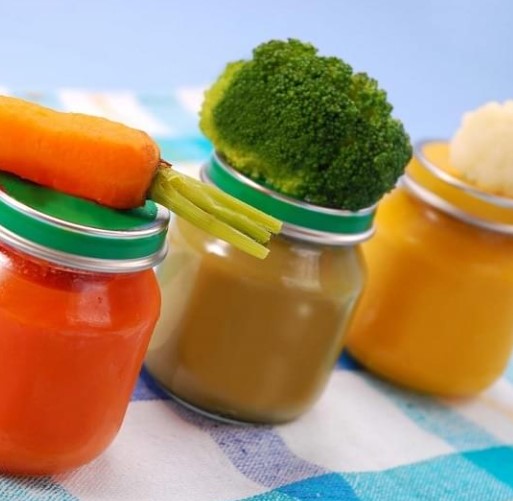Sunflower oil, milk. What other Belarusian products is Zimbabwe interested in?

Photo is illustrative in nature. From open sources.
Photo by the Ministry of Agriculture and Food, June 5, Minsk . Minister of Agriculture and Food Yuri Gorlov held a business meeting with Zimbabwe's Deputy Minister of Agriculture, Water, Climate, and Human Settlements, Vangelis Haritatos, where they expressed interest in importing Belarusian milk, sunflower oil, and agricultural machinery, the press service of the Ministry of Agriculture and Food told BelTA.
The Zimbabwean delegation's visit took place as part of the Belagro 2025 international specialized exhibition and demonstrates a commitment to establishing bilateral cooperation in the agricultural sector.
The parties discussed specific proposals for increasing the volume of agricultural product supplies and expanding their product range. For example, in 2024 , Belarusian exports to the southern African country included skim milk powder , while Belarusians imported citrus fruits and flowers. However, experts believe the prospects for cooperation are much broader.
As the agricultural ministry recalled, in March 2024, the Zimbabwean side inspected Belarusian dairy processing plants, following which the Belarusian enterprises began exporting dairy products to Zimbabwe. A veterinary certificate for such exports was also agreed upon. Belarusian companies are currently working on the packaging and logistics details for entering the Zimbabwean market.
"We are ready not only to maintain our current positions but also to move forward to supply more dairy products, including baby food , and to develop partnerships in other areas," emphasized Yuri Gorlov.
"Zimbabwe's milk demand is 130 million liters per year, and we have currently reached a production level of 120 million liters. These figures demonstrate our interest in this product. There is also interest in the supply of sunflower oil and agricultural machinery," Vangelis Haritatos praised the level of specialist training and the organization of production processes in Belarus.
It was noted that Zimbabwe could be recognized as a country that has fully achieved domestic food security as early as this year. According to a representative of the Zimbabwean delegation, agricultural mechanization, including the use of Belarusian equipment, played a significant role in this achievement.
"It is thanks to Belarusian equipment, its productivity, and our cooperation that we realized how valuable our land is and how much benefit it can bring. We must continue to work together and develop cooperation to achieve even greater results," said Zimbabwe's Deputy Minister of Agriculture, Water, Climate, and Human Settlements.
The Ministry of Agriculture and Food concluded that the meeting was an important step in deepening bilateral ties and opened up new opportunities for practical cooperation in agriculture between Belarus and Zimbabwe.
The Zimbabwean delegation's visit took place as part of the Belagro 2025 international specialized exhibition and demonstrates a commitment to establishing bilateral cooperation in the agricultural sector.
The parties discussed specific proposals for increasing the volume of agricultural product supplies and expanding their product range. For example, in 2024 , Belarusian exports to the southern African country included skim milk powder , while Belarusians imported citrus fruits and flowers. However, experts believe the prospects for cooperation are much broader.
As the agricultural ministry recalled, in March 2024, the Zimbabwean side inspected Belarusian dairy processing plants, following which the Belarusian enterprises began exporting dairy products to Zimbabwe. A veterinary certificate for such exports was also agreed upon. Belarusian companies are currently working on the packaging and logistics details for entering the Zimbabwean market.
"We are ready not only to maintain our current positions but also to move forward to supply more dairy products, including baby food , and to develop partnerships in other areas," emphasized Yuri Gorlov.
"Zimbabwe's milk demand is 130 million liters per year, and we have currently reached a production level of 120 million liters. These figures demonstrate our interest in this product. There is also interest in the supply of sunflower oil and agricultural machinery," Vangelis Haritatos praised the level of specialist training and the organization of production processes in Belarus.
It was noted that Zimbabwe could be recognized as a country that has fully achieved domestic food security as early as this year. According to a representative of the Zimbabwean delegation, agricultural mechanization, including the use of Belarusian equipment, played a significant role in this achievement.
"It is thanks to Belarusian equipment, its productivity, and our cooperation that we realized how valuable our land is and how much benefit it can bring. We must continue to work together and develop cooperation to achieve even greater results," said Zimbabwe's Deputy Minister of Agriculture, Water, Climate, and Human Settlements.
The Ministry of Agriculture and Food concluded that the meeting was an important step in deepening bilateral ties and opened up new opportunities for practical cooperation in agriculture between Belarus and Zimbabwe.




























































